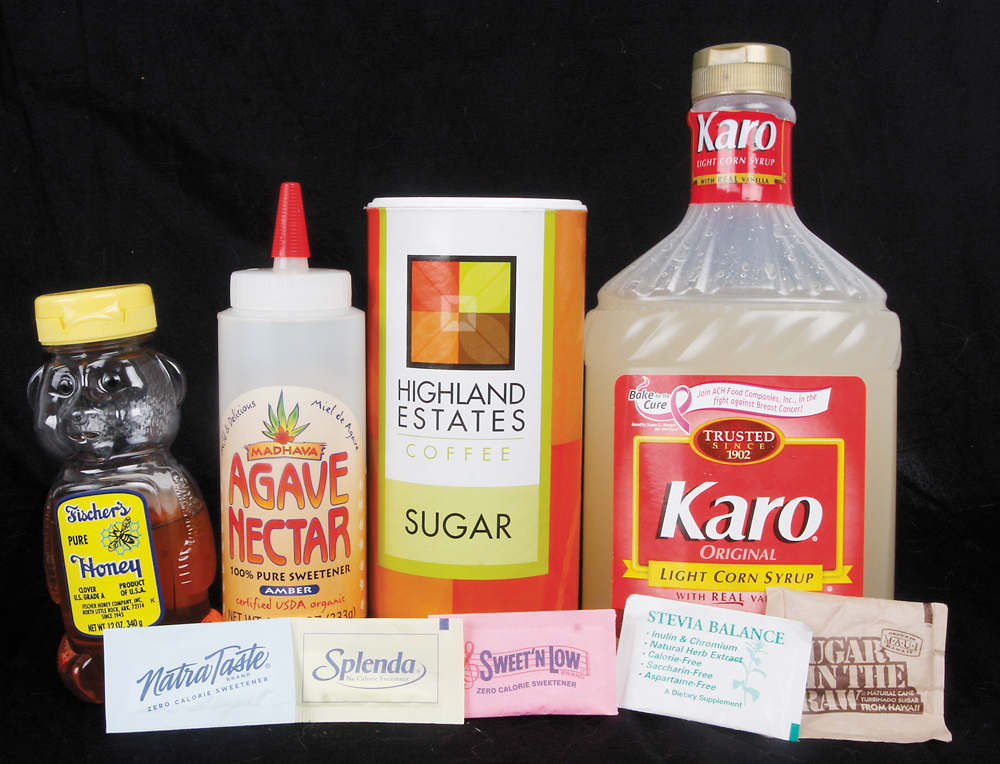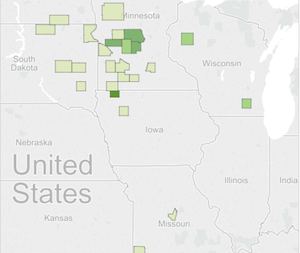Sugar is still sweet, in moderation, experts say.
With many options of sweetening agents available-processed or raw sugar, Stevia or Sweet'n Low, honey or agave-local dietary experts say nothing need be eliminated entirely. The key is to indulge the sweet tooth judiciously.
The American Heart Association recommends women limit their sugar intake to 100 calories, or six teaspoons, per day. For men, the recommended limits are 150 calories or nine teaspoons.
"It breaks down to moderation, but you have to be an informed consumer about what you're buying," said Brian Jones, registered dietitian at Memorial Hospital. "There's not one sweetener I would brand as the devil."
Questions surrounding the safety of artificial sweeteners have been circulating for decades.
"Some artificial sweeteners were considered to increase risk of cancer," said Indi Maharaj, registered dietitian at the Chattanooga Lifestyle Center at Erlanger hospital, "but there is not enough substantial research on it."
The website for the National Cancer Institute indicates carcinogenicity studies have not provided clear evidence of a correlation between consumption of artificial sweeteners and cancer in humans. While products containing saccharin, including Sweet'n Low, used to contain a carcinogen warning, the substance was delisted and the warning label repealed in December 2000.
However, the controversies remain. A recent study from the University of Miami suggested that those who drank diet soda daily had a 61 percent increased risk of stroke.
But Jones said this study raises more questions than it provides answers.
"That was not peer-reviewed research," he said. "They did not control for family history or obesity. And they did not say what kind of artificial sweeteners were in those sodas."
Though artificial sweeteners have been vilified by proponents of the natural food movement, they do have some benefits, particularly for diabetic patients.
"The rules change a little bit," said Jones, "artificial sweeteners do not create an insulin response, so they are going to be healthier (for diabetics)."
Maharaj added that artificial sweeteners also don't cause the cavities and dental decay sugar can.
And while dieters might prefer non-caloric sweeteners, Maharaj and Jones both say a diet high in sugar substitutes can still lead to weight gain.
"Sugar substitutes aren't a magic bullet for weight loss," said Maharaj.
"It seems to be more of a behavioral problem," said Jones, "because people who use artificial sweeteners tend to eat more because they aren't satisfied."
The best way to lose weight, both say, is to focus the majority of the diet on whole foods.
While certain sweetening agents perceived as natural-honey, agave syrup, brown rice syrup or date sugar-are promoted as a healthier, more pure options, Maharaj said these products often do undergo a processing that alters them from their natural states.
"To go from a date to date sugar is highly processed," she said. "To go from the agave plant to the agave nectar is highly processed. Even stuff like Stevia to Truvia is highly processed. If you use limited quantities, a better option would be to use a little bit of [raw] sugar."
Jones noted having "patient after patient" in recent weeks mistake agave nectar as being calorie-free. In fact, agave nectar contains the same calories as honey or corn syrup.
Agave nectar is touted as having a low glycemic load, a measure of the effects of carbohydrates on blood sugar levels. The glycemic load of two tablespoons of agave nectar is 9.6, compared to a GL of 9 for one tablespoon of honey and 8 for one tablespoon sugar.
"Agave nectar might have a little bit of an advantage, but it's not as much as people think," said Jones.
One sweetening product that has recently come under attack is high fructose corn syrup.
"It's become the No. 1 target from the health-food movement," said Jones. "And partially, it's unfounded, from my point of view."
The Corn Refiners Association is seeking to have high fructose corn syrup renamed as corn sugar to remove the stigma from the product. A Feb. 10 press release noted the National Consumers League, a Washington, DC-based nonprofit, filed formal complaints with the Food and Drug Administration to reject a petition by the CRA.
"The FDA should not play spin doctor for the corn refining industry," Sally Greenberg, executive director of the NCL, said in the release. "... Should it turn out that HFCS does contribute to obesity or other adverse health outcomes, a regulatory decision allowing manufacturers to hide this ingredient from consumers could come back to haunt FDA."
Corn syrup yields the same calories as honey or agave nectar. All three are 25 percent higher in calories than sugar.
Studies about the adverse affects of corn syrup have yielded mixed results, said Maharaj.


